31 Aug 2022 | FEATURED: Martin Bright, News and features, Russia
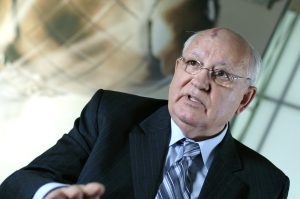
Mikhail Gorbachev in 2008. Photo: European Parliament, CC BY-NC-ND 2.0
In 2000 Mikhail Gorbachev wrote a short piece for Index on Censorship about the dangers to free expression in 21st century Russia. It followed raids carried out by masked, armed police on the offices of the Media-MOST consortium, then one of the most powerful media organisations in Russia. It was a show of force by the incoming president, Vladimir Putin, and a chilling sign of things to come.
The article, entitled Citizens’ Watch, expressed the best of the former President’s instincts in support of democracy and freedom: “Without a free press people don’t have a voice. They can be used as the authorities see fit; they can be manipulated”.
It was also prophetic in its concerns that the Russian people were sleepwalking into an authoritarian disaster: “I’m… worried and dispirited by the apathy of the public. The journalists are having to defend themselves on their own. It’s time we understood we shall never be a democratic state until we have learned to be citizens.”
He concluded: “It is not easy to live as a free man; without democratic institutions and rules, freedom often becomes its opposite.”
But the piece also demonstrates Gorbachev’s fatal weakness. As a good man with good intentions, he was too willing to give those with bad intentions (such as Vladimir Putin) the benefit of the doubt. Musing on who might be ultimately responsible for the crackdown, he wrote: “I find it hard to believe that raids like these can take place with the president’s knowledge. If, indeed, it is with his knowledge, I personally feel very disappointed.”
Disappointment defined Mikhail Gorbachev. As the last leader of the Soviet Union, he was quite possibly the most influential political figure of the post-war period, but from the moment the Berlin Wall fell, his life was marked with a series of disappointments. He had hoped the break-up of the Soviet Union would lead to democratic transformation and the introduction of a market economy with social safeguards. In many countries of the former Eastern bloc, this was indeed the case, but he also witnessed the rise of tyranny and corruption in many of the former Soviet republics. In his beloved Russia itself, he saw his liberal economic reforms hijacked first by the oligarchs and then by the state itself. This man of peace, whose childhood had driven him towards dialogue with the West, stood by as his country descended into an increasingly aggressive foreign policy with wars in Chechnya, Georgia, Syria and latterly in Ukraine. History will judge him harshly for his support of the Russian annexation of Crimea in 2014, although in his mind it was consistent with his lifelong support for national self-determination.
But possibly his greatest disappointment was what he saw as the catastrophic failure of world leaders to deal with the environmental crisis. In an interview with the Russian publication Dos’e na Tesnzuru reprinted in this magazine in 1998 he noted that “ecology” sprang to the top of the agenda in Russia thanks to his policy of glasnost (openness). As a result, 1,300 polluting enterprises were closed. It was his dream to establish a global environmental organisation to address the combined challenges of security poverty and environmental destruction and following the Rio Earth Summit in 1992 he established Green Cross International in Geneva.
His words in Index sounded an important warning: “Everyone can see that the forests are retreating, rivers becoming polluted. The reasons are obvious – people rule the earth, but they are not looking after it, only making demands: give me cotton, give me wood, give, give, give. We have to manage things differently.”
The end of the Cold War was Gorbachev’s greatest legacy and he knew that the freedoms he helped establish were built on the work done by the dissident intellectuals that came before him. He also knew that complacency was not an option.
A quarter of a century ago he told Dos’e na Tesnuru (which means Index on Censorship in Russian): “I am not a pessimist. All over the world the last dictators are leaving the political scene; attempts to impose dictatorship are ridiculous. Only one thing can protect us from such attempts – freedom of speech. That’s why any defence of freedom of speech is so important. Without it we could find ourselves once again caught in the trap.” His prediction of the demise of dictatorships was perhaps premature, but he was never wrong about the antidote.
6 Apr 2022 | News and features, Russia, Ukraine
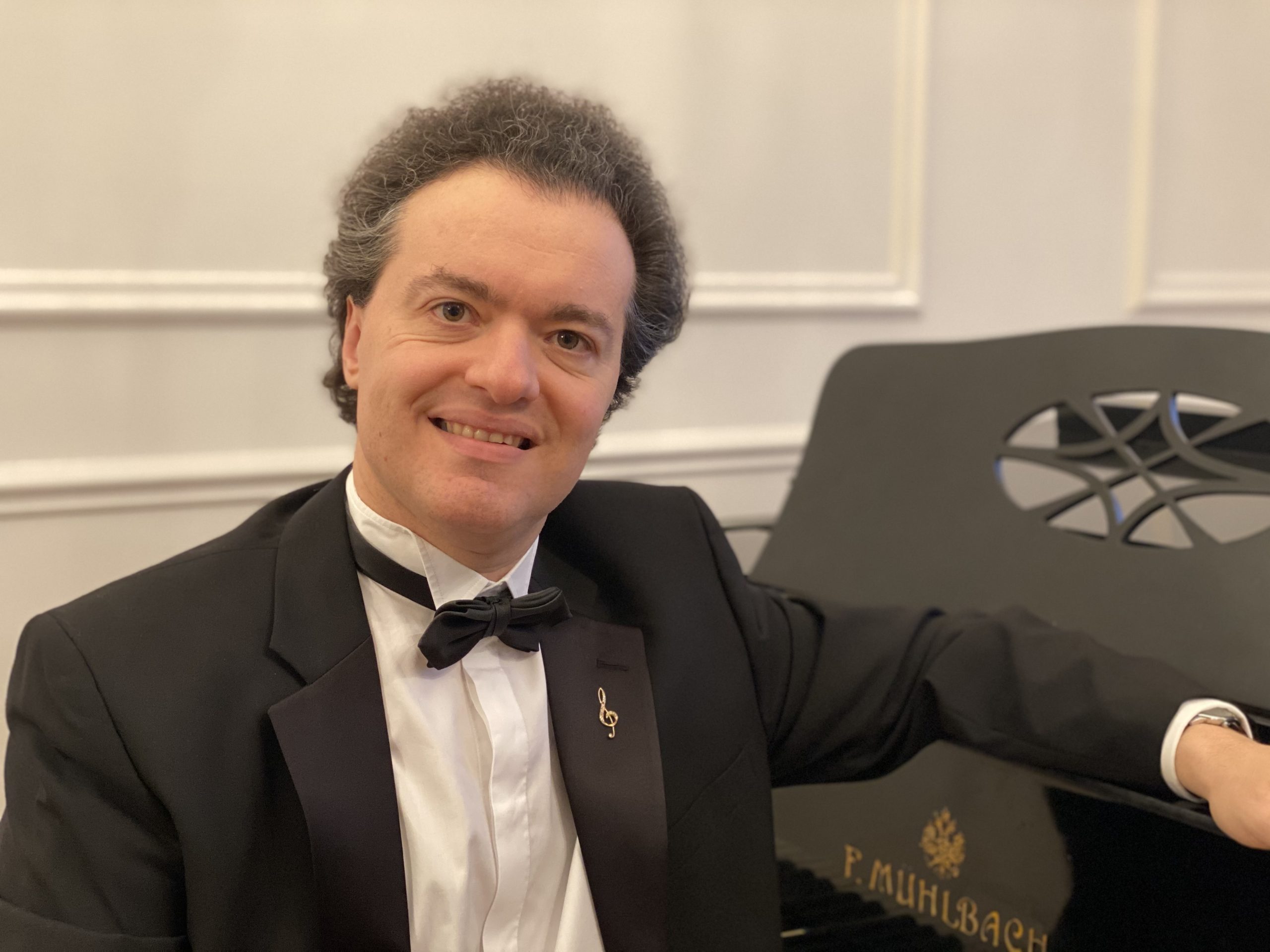
Evgeny Kissin, one of the most famous pianists in Russia, has described Vladimir Putin as a “bloodthirsty criminal”. Photo: Wikimedia Commons/Gkobe
The world in which Index on Censorship was born seems to be reemerging. In August 1968, after the blossoming of freedoms in Czechoslovakia known collectively as the Prague Spring, the Soviet Union invaded the country. Protesters were brutally crushed. Despite the violence and the stranglehold on freedoms back in Russia, eight fearless dissidents took to Red Square in Moscow to demonstrate.
One of the bold demonstrators was Pavel Litvinov, a young physicist at the time. In that same year Litvinov had co-authored a pamphlet entitled Appeal to World Public Opinion, asking those in the west to fight against the suppression of dissent in the Soviet Union. The poet Stephen Spender responded, suggesting the creation of an international committee whose goal would be to support the democratic movement in the USSR. This committee would engage writers, scholars, artists and public personalities from countries like the UK, the USA and also Latin American nations.
This is how Index on Censorship was brought into life, responding to the call of these dissidents and giving them a voice.
More than 50 years later, the USSR doesn’t exist anymore, but Russia has shocked the world with the invasion and consequential brutal war in Ukraine. What remains is the courage and bravery of people and dissidents defying the regime of Vladimir Putin. Below are just six of the noticeable Russian citizens who’ve spoken up against Putin and the war in Ukraine.
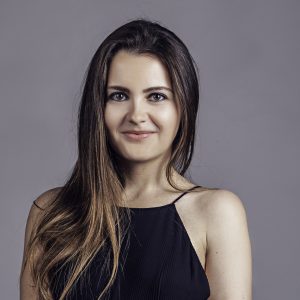
Russian artist Victoria Marchenkova, who’s been using Facebook to encourage people in Ukraine to flee to Canada. Photo: Wikimedia Commons/Na4ya
“STOP THE WAR” – that’s what the Moscow-born artist Victoria Marchenkova wrote on her website. Marchenkova works with different styles, but with one thing in mind: approaching the economic situation of the world, international traditions and its heritage. After the war in Ukraine began, she announced on her website that her solo exhibition at a Moscow gallery had been delayed until the end of the Russian invasion. Her exact words? “Please let’s save the world all together. STOP THE WAR”. Very active on Facebook, she has also encouraged people in Ukraine to flee to Canada.[/vc_column_text][vc_custom_heading text=”2. Evgeny Kissin – pianist”][vc_column_text]The pianist Evgeny Kissin has been an important name from Russia who declared himself against the war. In a solemn video titled Note of Protest, Kissin called Russia’s invasion of Ukraine a crime that has no excuse and also described Vladimir Putin as a bloodthirsty criminal. “Sadly, far from all who initiate criminal wars are punished, but none escape the judgment of history,” Kissin said. The video was published on his Instagram account and was viewed around 100,000 times.[/vc_column_text][vc_custom_heading text=”3. Mikhail Gelfand – biologist”][vc_column_text]Renowned Russian biologist Mikhail Gelfand is considered one of the most important people in the area of molecular evolution, comparative genomics and systems biology. He was the main person behind a letter signed by approximately 7,000 Russian scientists against the war in Ukraine. It’s a bold move. The Russian president has said that every Russian citizen who questions his invasion of Ukraine will be treated as a traitor and that a necessary self-purification of society will help to strengthen the country.[/vc_column_text][vc_custom_heading text=”4. Marina Ovsyannikova – journalist”][vc_column_text]
Daughter to a Russian mother and an Ukrainian father, Marina Ovsyannikova is a Russian journalist who had a job on the Channel One Russia TV channel. She gained prominence after she broke into a state-controlled Russian TV news broadcast and protested against the war. As a result, she was arrested and fined, but was released afterwards. Today, while she waits trial for interrupting the news programme, she is very active on her Instagram account. If convicted, she could be sentenced to 15 years in prison. In a recent post on Instagram, she wrote: “I wanted to demonstrate to the world that not all Russian people believe the same and I believe that many people… are against the war.”
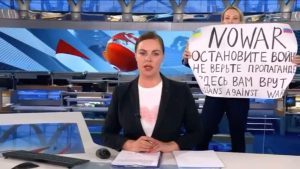
This video grab shows Russian Channel One editor Marina Ovsyannikova holding a poster reading ” Stop the war. Don’t believe the propaganda. Here they are lying to you” during on-air TV studio by news anchor Yekaterina Andreyeva, Russia’s most-watched evening news broadcast. Photo: Zuma Press/Alamy
[/vc_column_text][vc_custom_heading text=”5. Ilya Varlamov – blogger”][vc_column_text]The Russian Youtuber from Moscow has been speaking openly about the war in Ukraine on his Youtube channel, which is focused on analysing politics in Russia. Often critical in tone he has interviewed people such as Alexei Venediktov, the former editor-in-chief of the now-closed Ekho Moskvy. He has more than 3.3 million subscribers, where he’s been publishing videos almost daily. At the time of print, Varlamov had not been detained for his criticisms. He does have some experience of this though; he was briefly arrested in South Sudan after security found the remote control of a drone in his luggage, accusing him of trying to film military activities with the drone.
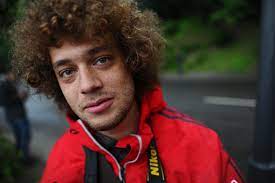
Russian Youtuber Ilya Varlamov. Photo: Wikimedia Commons/Mitya Aleshkovskiy
[/vc_column_text][vc_custom_heading text=”6. Youri Doud – blogger”][vc_column_text]Born in East Germany in 1986, Youri Doud sees himself as Russian by identity. He’s worked as a freelance journalist and in 2017 he launched a Youtube channel with the purpose of interviewing Russian celebrities. After Russia began its so called “mission” in Ukraine, Doud shared on his Instagram account a song called 100-year War, written by the group Noize MC, which has achieved millions of likes and reactions. The song discusses what artists should do when it’s not within their power to change a political catastrophe which is developing. The conclusion of the band is short and clear: “We have no other choice than to honestly speak up about what is happening. So that’s what we are doing.
17 Feb 2022 | Opinion, Ruth's blog
Tyrants love a distraction. There are only so many issues, so many countries, so many crises that our global institutions can focus on at any given time. So the worst but most effective of authoritarian regimes seek to implement their most repressive acts when the world is looking elsewhere. Of all those that seek to use misdirection and obfuscation I think it’s fair to suggest that Vladimir Putin is one of the masters.
In recent weeks we’ve seen a terrifying but all consuming escalation in Russian threats against Ukraine. 60% of their land army is now deployed on the borders of Ukraine and Belarus – but we are meant to believe that they have no plans to invade, or rather continue their war against Ukraine that began in 2014 when they invaded Crimea.
The world has rightly been focused on troop movements on the Ukrainian border. Every leader has spoken publicly of events in Eastern Europe. NATO leaders have talked daily, and nearly every democratic power has met with or spoken directly to President Putin. Their conversations have not touched on human rights violations within Russia, Putin’s support for a ruthless dictatorship in Belarus or even their weaponising of cyber activism to undermine democracies.
In the phoney propaganda war Putin is winning. On his own terms. And the world is letting him. He has determined the agenda at hand, world leaders are flocking to meet him in order to stop World War Three (rightly) and the rest of his indiscretions and human rights violations are, for now at least, off the table.
Which brings me to the subject of this blog. Alexei Navalny. On Tuesday, as our world leaders sought to prevent a new war, Putin’s biggest critic was put on trial, again.
The popular Russian opposition leader is accused of embezzling donations to his FBK anti-corruption organisation, which spearheaded investigations into Russian officials and sparked large protests against Putin. Navalny has denied the charges and says they’re politically motivated.
Putin is so fearful of dissent that he has held the trial not in Moscow, in a court, but rather in the prison that Navalny is already detained in. Navalny is being tried three to four hours from Moscow, a journey which is less than straightforward. If lawyers and observers do manage to get to the IK-2 penal colony then no phones or recording equipment may be taken inside, no evidence of impropriety obtained.
Hi wife Yulia wrote on Instagram on the eve of the trial: “[The authorities] want to hide him from all people, from his supporters, from journalists. It is so pathetic that they are afraid to hold the trial in Moscow.”
If Navalny is found guilty, again, then he will face a further 15 years in prison. Every day his family fear for his safety, not unreasonably after the attempted assassination attempt with Novichock in 2020.
Navalny’s case embodies Putin’s dismissal of the rule of law and his callous disregard for basic human rights. Index will continue to stand with Navalny and will keep telling his story to make sure that Putin knows the world is still watching.
12 May 2021 | News and features, Russia
[vc_row][vc_column][vc_single_image image=”116753″ img_size=”full” add_caption=”yes”][vc_column_text]Alexei Navalny, the Russian opposition leader and Putin critic, is using Instagram to send messages from the penal colony where he is being held to the outside world about his ill-treatment.
Navalny has been in the colony since February, as a direct result of his poisoning with Novichok nerve agent last summer.
The vocal critic of Vladimir Putin’s leadership collapsed on a flight in August and was taken to Omsk where he was treated before being airlifted to Berlin. The doctors there concluded that he had been poisoned with the nerve agent, with the FSB in the frame for doing so, which they deny. [In a bizarre twist, one of the doctors at the Omsk hospital recently disappeared and was found two days ago wandering around a forest.]
He spent a month in Berlin in recovery before returning to Russia, despite threats that he would be detained.
On his return, he was arrested and put on trial for charges relating to an embezzlement case dating from 2014 for violating parole conditions associated with that case. Index and others believe that the charges are politically motivated and are designed to stop Navalny from contesting elections. Navalny’s argument was that he could not register twice per month as agreed in those conditions because he was in hospital.
Despite his arguments, Navalny was sentenced to almost three years in a penal colony in Vladimir Oblast, east of Moscow.
His Instagram feed – updated by his supports and family – reveals that he has been denied medical care, been tortured with sleep deprivation and is being held in unsanitary conditions with many fellow inmates suffering from tuberculosis.
On 31 March, Navalny announced he was going on hunger strike to protest that he was not receiving adequate medical treatment for acute pain in his back and a loss of feeling in his legs and was being deprived of sleep.
“I have the right to call a doctor and get medicine. They don’t give me either one or the other, “ he said.
“Instead of medical assistance, I am tortured with sleep deprivation (they wake me up eight times a night),” he wrote in one post.
A week later he revealed that there was a high incidence of tuberculosis in the colony, with three out of fifteen in his “detachment” with symptoms.
“Inside there are unsanitary conditions, tuberculosis, a lack of drugs. Looking at the nightmare plates on which they put gruel, I’m generally surprised that there is no Ebola virus here,” he wrote.
On the 13th day of his hunger strike, he complained that the books he had brought with him had been confiscated and that books that he had requested had not been provided.
Navalny had requested a copy of the Koran in order to better understand Islam.
He wrote, “I came here a month ago and brought a bunch of books. And ordered a bunch of books. But so far I have not been given a single one. Because all of them ‘must be checked for extremism’. It takes three months.”
He has now filed a lawsuit against the colony for their failure to provide them.
“Here books are our everything, and if you have to sue for the right to read, I will sue,” he wrote.
Four days later, his captors threatened to force-feed him.
“This morning, a woman colonel stood over me and said: your blood test indicates a serious deterioration in health and risk. If you do not give up on your hunger strike, then we are ready to move on to force feeding now. And then she described the delights of force-feeding to me: straitjacket and other joys,” he wrote.
By 20 April, Navalny called himself a “walking skeleton” but revealed that the messages of support from Russia and around the world were sustaining him.
On 23 April, he wrote, “As Alice from Wonderland said: ‘Here you have to run to stay put. And to get somewhere, you have to run twice as fast.’…I ran, tried, fell, went on a hunger strike, but all the same, without your help, I just broke my forehead.”
Navalny says that the attention focused on him has meant that he finally started receiving some medical treatment.
“Two months ago, they smirked at my requests for medical assistance, they did not give any medicines and did not allow them to be transferred. A month ago, they laughed in my face at phrases like: ‘Can I find out my diagnosis?’ and ‘Can I see my own medical record?’” he wrote.
He has now been examined twice by a council of civilian doctors and has now abandoned his hunger strike.
“It will take 24 days and they say it is even harder [than the hunger strike itself]. Wish me luck.”
On 27 April, he looked back on the previous 12 months, calling it “the year of doctors and nurses and physicians in general”.
“I have never talked so much with them in my life,” he said. “First, the doctors saved me, who was dying from chemical poisoning on the plane.”
He added, “Then they rescued me a second time, risking their careers, explaining to my wife and everyone that I should be immediately taken away from the Omsk hospital, where their evil colleagues will kill me (they will not just treat me) on the orders of the Kremlin.”
“Then the Charité doctors [in Berlin] turned me from a vegetable back into a human being.”
Navalny said in his Instagram message that some doctors had fought a desperate campaign to get him normal treatment.
“Thanks to my prison doctors. I understand that they are just working within the framework that was given to them by their superiors, and therefore by the Kremlin. I can see now that people are sincerely trying to help. Yesterday, the nurse made a mark on my wrist with a pen, so as not to forget the hour when I had to give the next three tablespoons of oatmeal.”
He added, “You know, even through what I had been through all these months: I want one of my children to be a doctor. Although the children are probably not already. Well, let one of the grandchildren then.”
On 2 May, the day that the Russian Orthodox church celebrates Easter, the following message was posted on Instagram.
“How long I have been waiting for this Easter? Lent this year turned out to be difficult for me. Unfortunately, I will not be able to share a fully-fledged Easter meal today: I am still in the first half of my fascinating transformation from a skeleton barely dragging its feet into just a hungry man. But I will eat a few spoons of porridge allowed for me with an excellent Easter mood. Indeed, on such a day, I know and remember for sure that everything will be fine.”
Index and the rest of the world are watching to make sure everything will be fine.[/vc_column_text][/vc_column][/vc_row][vc_row][vc_column][three_column_post title=”You may also want to read” category_id=”15″][/vc_column][/vc_row]





